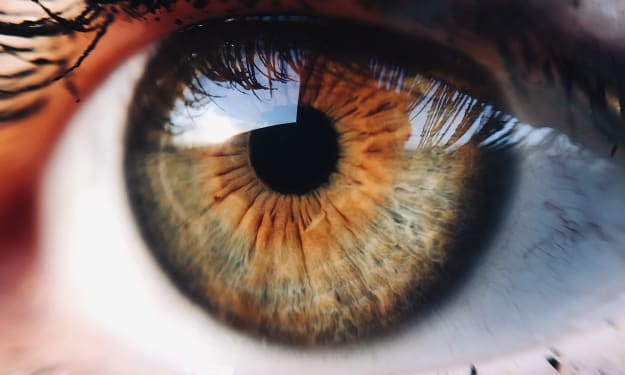Prioritizing self-care: Taking Care Of Your Physical And Emotional Well-being During Menopause
Menopause

Menopause is a normal part of a woman’s life that marks the end of her ability to have children. It’s a time when your body and emotions change a lot, and it can be hard to get through. During this time, you need to put yourself first if you want to stay physically and emotionally healthy.
Taking care of your health is one of the most important things you can do for yourself during menopause. This means working out often, eating well, and getting enough sleep. Exercise can help with signs like hot flashes and mood swings, and a healthy diet can help with weight gain and lower the risk of chronic diseases. During menopause, it’s also important to get enough sleep because it can help improve your mood, energy, and general health.
During menopause, it is also important to put mental self-care at the top of your list. This includes dealing with stress, being aware, and getting help when you need it. Emotionally, menopause can be hard, so it’s important to take steps to deal with worry and anxiety. Mindfulness practices, like meditation or taking deep breaths, can help lower stress and help you relax. During this time, it can also help to get help from friends, family, or a doctor.
Understanding Menopause
Physical Changes
During menopause, our bodies undergo significant physical changes. The decrease in estrogen levels can cause a variety of symptoms, such as:
- Hot flashes
- Night sweats
- Irregular periods
- Vaginal dryness
- Loss of libido
- Weight gain
- Joint pain
These symptoms can be uncomfortable and disruptive to our daily lives. It’s important to talk to our healthcare provider about our symptoms and explore treatment options that may help alleviate them.
Emotional Changes
Menopause can also change how we feel about ourselves. Changes in hormones can cause mood swings, anger, anxiety, and even sadness. These changes can be hard to deal with, but there are things we can do to help our mental health:
- Engage in regular exercise
- Practice stress-reducing techniques such as meditation or yoga
- Connect with friends and family for emotional support
- Consider therapy or counseling if needed
Menopause is a normal part of getting older, and it’s important to remember that we’re not the only ones going through these changes. By putting our physical and mental health first, we can get through this change more easily.
Prioritizing Physical Self-Care
Taking care of our physical health is crucial during menopause. Here are some ways we can prioritize our physical self-care.
Diet and Nutrition
A well-balanced food is important for our health as a whole. To keep our bones healthy during menopause, we should eat foods that are high in calcium and vitamin D. Fruits, vegetables, and whole grains that are high in fiber can help prevent constipation, which is a typical symptom of menopause. We should also limit how much caffeine, booze, and spicy foods we eat because they can cause hot flashes.

Exercise and Fitness
Regular exercise can help us keep a healthy weight, reduce stress, and improve our general health. Most days of the week, we should try to work out for at least 30 minutes at a moderate level of effort. Moderate-intensity exercises include walking quickly, riding a bike, and swimming. Lifting weights or using resistance bands, which are both types of strength training, can help keep the bone structure and muscle mass.
Sleep and Rest
It’s important for our physical and mental health to get enough sleep. Hot flashes and night sweats can make it hard to sleep during menopause. We can sleep better if we have a normal sleep schedule, don’t drink caffeine or alcohol before bed, and make our bedrooms comfortable. We can also feel more rested by taking short naps during the day.
In short, it’s important to put our physical health first during menopause. By paying attention to what we eat, how fit we are, and how much we sleep and rest, we can keep our bodies healthy and get ready for the mental challenges that may come up during this time.
Prioritizing Emotional Self-Care
It’s important to put our mental health first when we’re going through menopause. Both physically and mentally, menopause can be a hard time. So, we need to take care of our mental health to help make the change easier. Here are some ways we can put mental self-care at the top of our list:
Stress Management
Stress is a common symptom of menopause and can exacerbate other symptoms. Therefore, it is crucial to manage stress effectively. Here are some tips to help manage stress:
- Practice relaxation techniques, such as deep breathing, meditation, or yoga.
- Exercise regularly to release endorphins, which can improve mood and reduce stress.
- Get enough sleep to help manage stress and improve overall well-being.
- Avoid caffeine, alcohol, and nicotine, as they can increase stress levels.
Mental Health
Menopause can also impact our mental health, leading to symptoms such as anxiety and depression. Here are some ways to prioritize our mental health:
- Seek professional help if experiencing symptoms of anxiety or depression.
- Practice self-compassion and positive self-talk.
- Engage in activities that bring joy and fulfillment.
- Set realistic expectations for ourselves.
- Social Support
Having a strong support system can help us navigate the challenges of menopause. Here are some ways to prioritize social support:
- Spend time with loved ones and friends.
- Join a support group to connect with others going through similar experiences.
- Seek out professional counseling if necessary.
- Practice good communication with loved ones to express our needs and concerns.
By prioritizing emotional self-care, we can improve our overall well-being and ease the transition through menopause. Remember to take care of yourself and seek support when needed.
Alternative Treatments
When it comes to managing menopause symptoms, alternative treatments can be a helpful addition to your self-care routine. Here are some alternative treatments that you might consider:
Herbal Remedies
Herbal medicines have been used to treat a wide range of health problems for hundreds of years. Herbs like black cohosh, red clover, and dong quai are often used to treat the signs of menopause. But it’s important to remember that herbal remedies can combine with medications and may not be safe for everyone. Before you start taking any herbal treatments, you should always talk to your doctor.
Acupuncture
Acupuncture is a form of traditional Chinese medicine that includes putting thin needles into certain points on the body. Some women who are going through menopause find that acupuncture helps with hot flashes, night sweats, and other symptoms. But studies on acupuncture for menopause isn’t all that clear, and it might not work for everyone.
Massage Therapy
Massage therapy is a great way to relax and lower stress, which can help with menopause symptoms. Some studies have also shown that massage treatment can help with hot flashes and other symptoms. But it’s important to find a licensed massage therapist who has worked with women who are going through menopause.
In general, adding alternative methods to your self-care routine during menopause can be helpful. But it’s important to talk to your doctor before starting any new treatments and to use them along with other self-care practices like regular exercise and a healthy diet.
Medical Treatments
Hormone Replacement Therapy
Hormone replacement therapy (HRT) is a way to help deal with the symptoms of menopause. It includes taking oestrogen and progesterone. HRT comes in many different types, like pills, patches, creams, and gels. It can help ease signs like hot flashes, dryness in the uterus, and more.
HRT might not work for everyone, though. We should talk to our doctor about our health background and any risks that come with HRT. Some women may be more likely to get breast cancer, heart disease, or a stroke if they take HRT.
Medications
There are other medicines that can help with the signs of menopause. These include medicines to treat depression, high blood pressure, and seizures. These medicines can help with things like hot flashes, mood swings, and trouble sleeping.
It is important to talk to our doctor about any drugs we are taking and any possible side effects. Some medicines might not work for everybody.
Surgery
In some cases, surgery may be suggested to help with the signs of menopause. This could involve a hysterectomy or an oophorectomy, in which the eggs are taken out. Some of the signs that these surgeries can help with are heavy bleeding, pelvic pain, and hot flashes.
But surgery is not always needed and should be carefully thought about. We should talk to our doctor about the risks and benefits of surgery and any other treatment choices we have.
In conclusion, HRT, drugs, and surgery are all types of medical treatments that can help with menopause symptoms. But we should tell our doctor about our health background and any risks that come with these treatments. We should think about all the ways we could be treated and choose the best one for us.
About the Creator
Abby blasius
I am a passionate content creator with a strong focus on health and wellness. While my educational background lies in a Bachelor of Accounting and Finance, it is my innate desire to help people feel good about themselves in mind, body&soul
Enjoyed the story? Support the Creator.
Subscribe for free to receive all their stories in your feed. You could also pledge your support or give them a one-off tip, letting them know you appreciate their work.






Comments
There are no comments for this story
Be the first to respond and start the conversation.